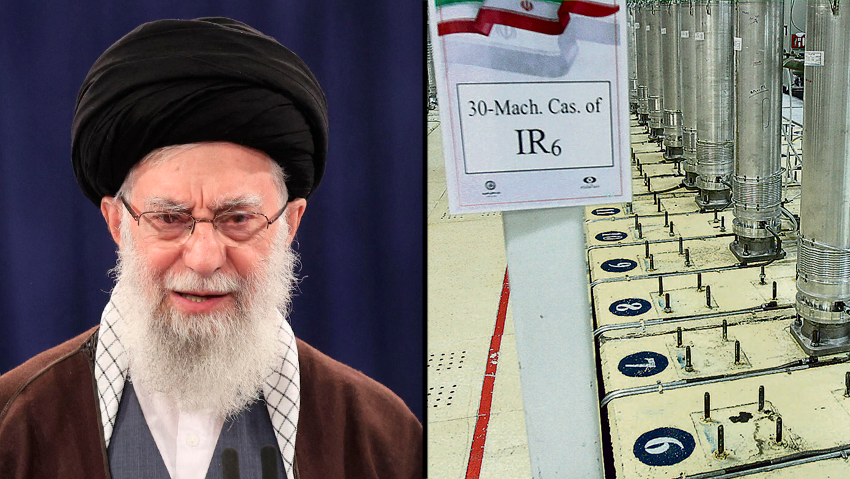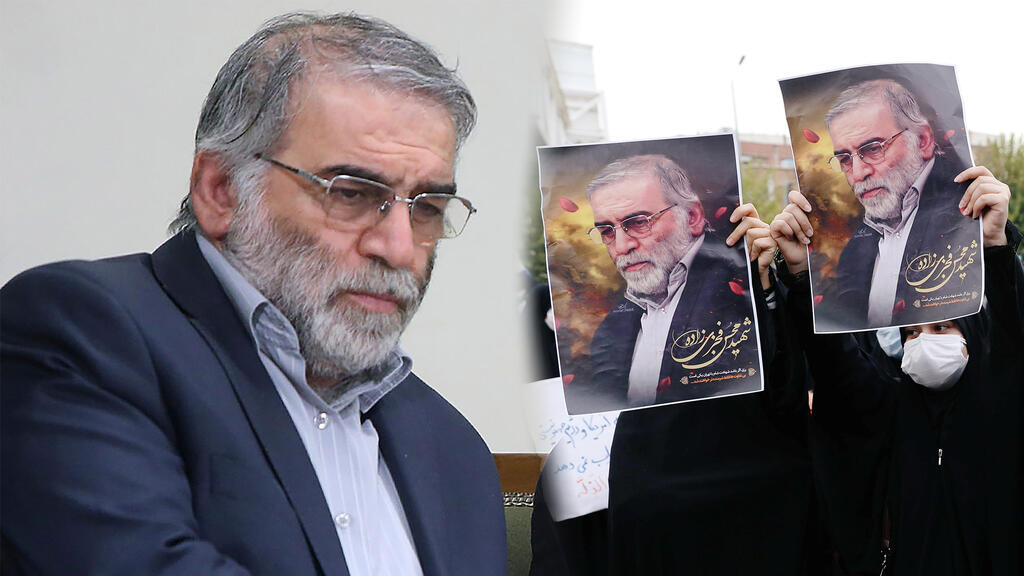Getting your Trinity Audio player ready...
Iran is secretly advancing its nuclear weapons program and is now closer than ever to building a nuclear bomb as Tehran is set to resume tests to produce nuclear bomb detonators, opposition-affiliated news outlet Iran International reported on Wednesday, citing three independent sources in Iran.
According to the report, Tehran was restructuring the Organization of Defensive Innovation and Research (SPND), a government-affiliated body responsible for advancing the country's military technology, including its nuclear weapons program, which remains under the leadership of Mohammad Eslami, head of the Atomic Energy Organization of Iran. Additionally, Iran is reportedly resuming experiments to produce triggers for nuclear bombs.
2 View gallery


Iranian Supreme Leader Ali Khamenei; uranium enrichment centrifuges at the Natanz nuclear facility
(Photo: AFP, AP)
For years, U.S. intelligence agencies have consistently stated in their annual reports that Iran “isn’t currently undertaking the key nuclear weapons development activities necessary to produce a testable nuclear device". However, the Director of National Intelligence’s 2024 report, released in July and cited by The Wall Street Journal on Friday, omitted this statement. Instead, the report noted that Iran has “undertaken activities that better position it to produce a nuclear device, if it chooses to do so.”
This new information suggests that the Islamic Republic has intensified its efforts to complete the nuclear weapons production cycle, including high-level uranium enrichment, the production of nuclear detonation devices and the development of missiles capable of carrying nuclear warheads.
The SPND's role in Iran's nuclear program
According to the report, less than a month before the death of Iranian President Ebrahim Raisi, the Iranian parliament passed a bill that formalized the SPND as an independent entity. Originally established in 2010 as a subsidiary of the Ministry of Defense, SPND was restructured under this new legislation, enacted just a week before Raisi's passing.
Mohsen Fakhrizadeh, a prominent figure in Iran's military nuclear program who was assassinated in an operation attributed to Mossad near Tehran in 2020, previously led SPND.
The new law reportedly granted SPND financial independence, exempting it from oversight by the National Audit Office and essentially allowing it to operate without budgetary accountability. The law also stipulates that SPND will be governed according to a statute issued by Supreme Leader Ali Khamenei.
The SPND's restructuring grants the organization unique autonomy, enabling it to continue the legacy of Fakhrizadeh, particularly in producing nuclear detonation devices.
Alongside Tehran’s efforts to launch satellites as part of its missile development program, SPND has allegedly continued working on a crucial component of Iran's nuclear program—nuclear detonators. This project has reportedly been carried out covertly under the name "Project 110" following the exposure of "Project Amad" in 2003.
Documents show that after 2003, Tehran continued working on neutron initiators for nuclear warheads at the Abadeh site, where previous detonator tests had been conducted.
According to sources speaking to Iran International, SPND launched a project called "Metfaz" at the Abadeh facility in 2011, involving one of the three key figures in Iran's current military nuclear program. The Islamic Republic previously claimed that this program had been discontinued.



